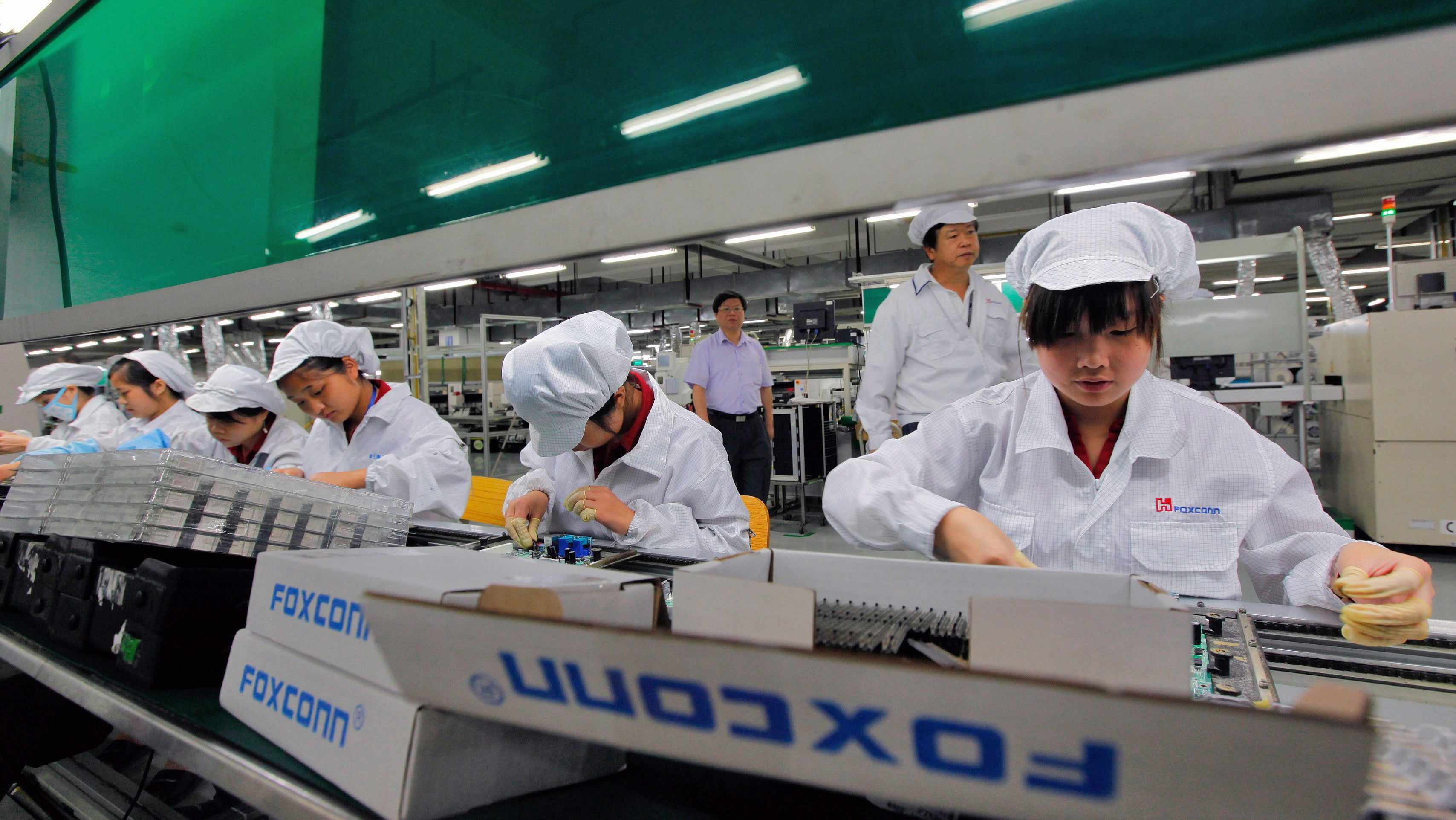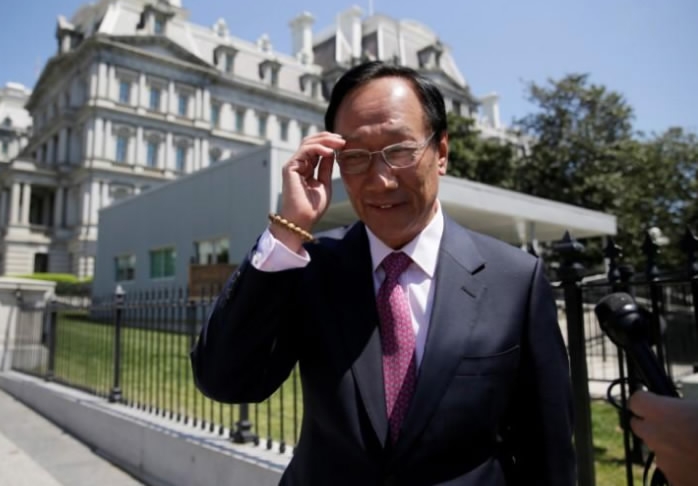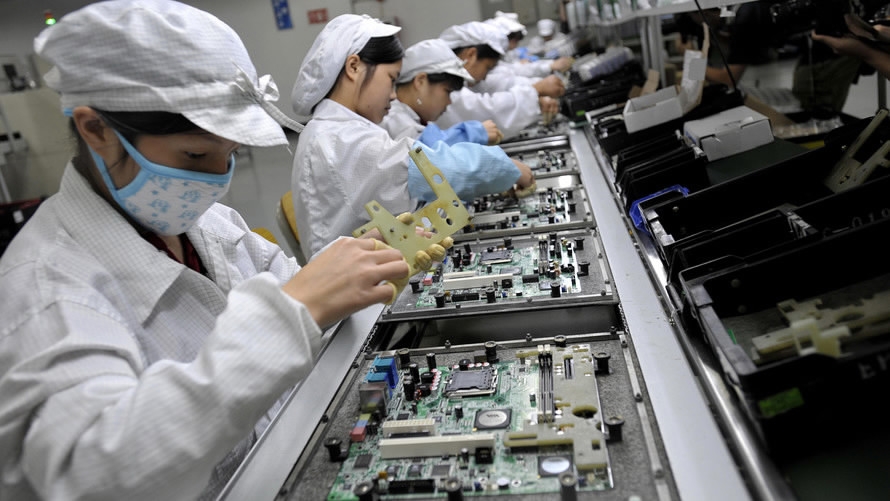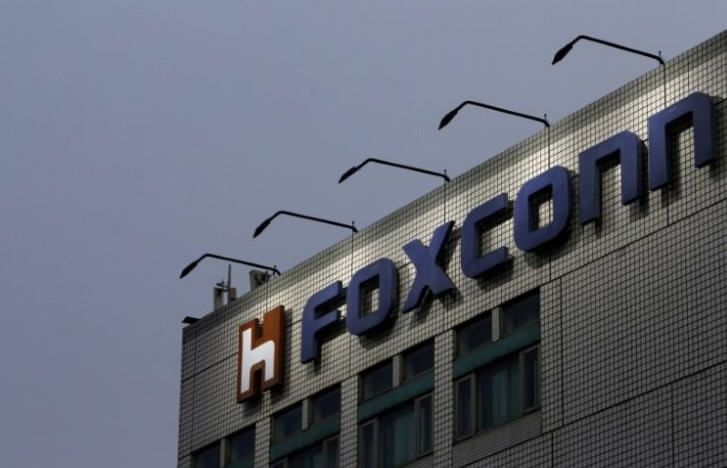
Business
11:59, 12-Aug-2017
Audits show lax oversight by Wisconsin agency counting Foxconn jobs
CGTN

The Wisconsin agency tasked with holding Foxconn accountable for delivering up to 13,000 jobs in exchange for 1.5 billion US dollars in state payroll tax credits has a history of failing to verify job-creation claims and rewarding companies that fall short of quotas, according to state audits.
The deal to secure Foxconn's proposed LCD screen plant announced late last month is one of the largest economic development agreements in US history and counts President Donald Trump, who rode into office on promises of creating manufacturing jobs, as one of its proponents.
A May audit found the Wisconsin Economic Development Corporation (WEDC) did not independently verify jobs numbers claimed by recipients of tax credits and posted inaccurate jobs figures online.
The agency intends to hire more staff to help manage the Foxconn project and is “committed to providing the highest level of transparency, accountability and accuracy in all of its awards,” spokesman Mark Maley said.

Foxconn Chairman Terry Gou talks to reporters as he exits the White House following a second day of meetings in Washington, U.S. on April 28, 2017. /Reuters Photo
Foxconn Chairman Terry Gou talks to reporters as he exits the White House following a second day of meetings in Washington, U.S. on April 28, 2017. /Reuters Photo
State and local governments since 1976 have awarded at least 105 billion US dollar in tax subsidies for corporate headquarter relocations, plant expansions and other developments, according to watchdog group Good Jobs First.
The deal with Taiwan's Foxconn, formally known as Hon Hai Precision Industry Co Ltd, and an unrelated announcement last week by Toyota that it would build a 1.6 billion-US-dollar plant in a yet-to-be-specified state placed renewed focus on tax-funded development deals.
Critics say the subsidies often fail to produce promised economic growth and jobs, yet oversight typically is light and states rarely claw back benefits when companies do not meet commitments.
Foxconn employs about 1.2 million workers in China. In Shenzhen and Chengdu, a combined Foxconn workforce of 500,000 provides labor for Apple Inc.

Workers assemble electronic components at Foxconn's giant factory in Shenzhen, China. /AFP Photo
Workers assemble electronic components at Foxconn's giant factory in Shenzhen, China. /AFP Photo
“States should always be skeptical of any job projections. That's why incentives should contain provisions to limit the costs per job-year, and to claw back incentives if a company leaves,” said Tim Bartik, senior economist with the Kalamazoo, Michigan-based W.E. Upjohn Institute for Employment Research.
The May audit also found the agency did not penalize companies even when it became aware they did not meet targets established in their contracts. It allowed one unidentified business to keep 1.4 million US dollars in tax credits after missing job-creation quotas and forgave a combined 1 million US dollars in loans to two businesses after they missed job targets, auditors found.
“WEDC cannot be certain about the numbers of jobs created or retained as a result of its awards,” the state’s auditor, Joe Chrisman, said in his report.
Wisconsin lawmakers this week raised questions about Foxconn’s commitment to job creation. The state’s memorandum of understanding with the company commits Foxconn to creating up to 13,000 plant jobs, meaning that number is a goal and not a minimum.

The logo of Foxconn, the trading name of Hon Hai Precision Industry, is seen on top of the company's headquarters in New Taipei City, Taiwan on March 29, 2016. /Reuters Photo
The logo of Foxconn, the trading name of Hon Hai Precision Industry, is seen on top of the company's headquarters in New Taipei City, Taiwan on March 29, 2016. /Reuters Photo
“The thing that is missing is if they don’t live up to the job creation on a short-term basis and hit the benchmarks moving out from there,” Wisconsin Senate Majority Leader Scott Fitzgerald, a Republican, told WISN-AM in Milwaukee.
Foxconn said in an emailed response to questions that its Wisconsin project is expected to create "tens of thousands" of jobs in the state but declined to say if it would commit to a specific number.
Under the deal with Wisconsin, Foxconn would pull in a 1.35 billion US dollar construction credit and benefit from 139 million US dollars in sales tax exemptions and 252 million US dollars in nearby highway improvements, regardless of how many it hires.
10615km
Source(s): AP
,AFP
,Reuters

SITEMAP
Copyright © 2018 CGTN. Beijing ICP prepared NO.16065310-3
Copyright © 2018 CGTN. Beijing ICP prepared NO.16065310-3